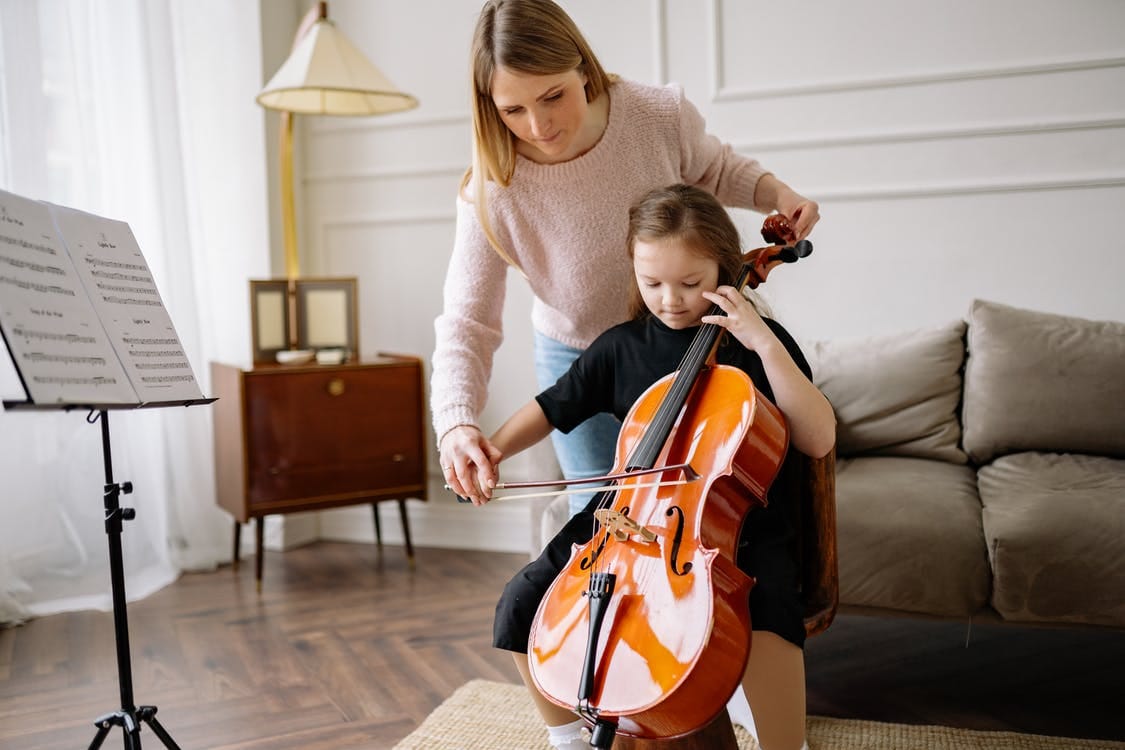Tips for Helping Your Child Succeed in Music Lessons

While learning how to play a musical instrument can be fulfilling, we know how difficult it can be. So it’s best to enroll your child in a music learning facility for quality music lessons. However, some still find it hard to triumph in this field because of a lack of interest and support. Fortunately, most pulled through and got past the challenging music lessons with the help of their parents. If you’re looking to help your child succeed in their music lessons, here are five tips to help your young aspiring musician.
Practice Makes Progress – Not Immediate Perfection
Remember, practice makes progress, which then precedes proficiency. Although music mostly requires passion and pride in one’s art, practice is the key to establishing a routine. As a parent, you can help your kid with their music lessons by teaching them to follow through.
Though students must be responsible, parents can support and encourage them. Here are some practicing tactics to teach your child:
Easy-Hard-Easy
It’s best to encourage your child to always start their practices with something they know. Usually, this is a scale, short warmups, or drills their teachers teach. Either way, beginning their practice sessions with something they can do themselves allows them to garner more confidence.
As a result, your child will be motivated to tackle something more challenging in their lesson books.
After practicing the method books, it’s best to encourage your child to perform something they like to play. As a parent, you can motivate your child while continuing their progress with this easy-hard-easy pattern when practicing. It gives a feeling of accomplishment and is also a great confidence booster!
Sit and Stay
One way to encourage your child with their music lessons is by using a timer. Once set, you must stay put until the time runs out. This method helps your child concentrate better, motivating them to play more songs per practice session.
Overall, most children dread practicing when learning to play an instrument or taking general music lessons. You can help your kid establish good habits of consistent everyday practice for more progress!
Be More Involved In Your Way
Parent involvement is vital to any child’s success in music lessons. If you’re wondering what’s the best way to do this, the answer is simple: be your kid’s number one fan! Make your humble abode a safe place for your child to make mistakes and have fun. Plus, you can show your appreciation by celebrating even the most minor achievements.
Even if you’re not fond of music yourself or don’t know much about it, showing your support toward your child can go a long way. Such involvement will plant a seed in your kid over time, eventually giving them the courage to pursue bigger things. Whether it’s auditioning for large talent competitions or learning another instrument, your involvement as a parent will go far.
Prioritize Character Over Competence
Although adding a bit of competitiveness is all right, don’t let this take over. Instead, prioritize molding your child’s character over competence. As a parent, it’s best to approach your kid’s music lessons to build character first.
Building character refers to regardless of how excellent a kid becomes at playing their instruments. The goal is to give the child more opportunities to gain more experiences beyond their lessons. Remember, participating in music provides social, emotional, and physical benefits to any child.
Here are some of the benefits of participating in music:
- It helps relieve anxiety in kids.
- Music helps children become more confident, overcoming their shyness.
- Participating in music helps kids learn how to accept and implement constructive criticism.
- Learning to play an instrument helps a child develop a healthy work ethic early on.
- Going through music lessons improves a child’s learning abilities.
- It instills more confidence in a child.
So, remember, though proficiency and constant progress are crucial, don’t limit your child to these. Help your kids look beyond their music lessons and see what other life teachings they can get from each session.
Practice Consistent Communication
Children often lose their motivation to learn how to play an instrument or take music lessons due to a lack of communication. It’s crucial between a teacher and student, and as a parent, you can help by opening up these channels. For instance, if your child is struggling with a particular lesson, make sure their teacher is aware.
Remember, teachers are there to guide your child, and many are constantly trying to experiment with new tactics to help your kid out. And they can help your child re-engage with their lessons in no time!
Therefore, if ever there’s an issue with your child and their music lessons, don’t hesitate and communicate! Clear communication will help your kid achieve a chance of success regardless of the music lessons or instruments.
Slow and Steady Wins the Race
It’s best to view music as a marathon instead of a sprint. In the fast-paced music world, it’s challenging to teach our kids that the best things come to those who take it slow and work hard. So, as a parent, it’s vital to view the learning of musical instruments as steady progress, not an immediate success.
Conclusion
As parents, we play a vital role in our child’s journey to success in their music development. This starts by deciding to enroll them in music lessons. However, you might wonder, what are the musical instruments that my child wants to learn?
The truth is, it’s up to your child and your guidance.
Once you have signed up your child for a music lesson, make sure to be involved and show your support all the way.





